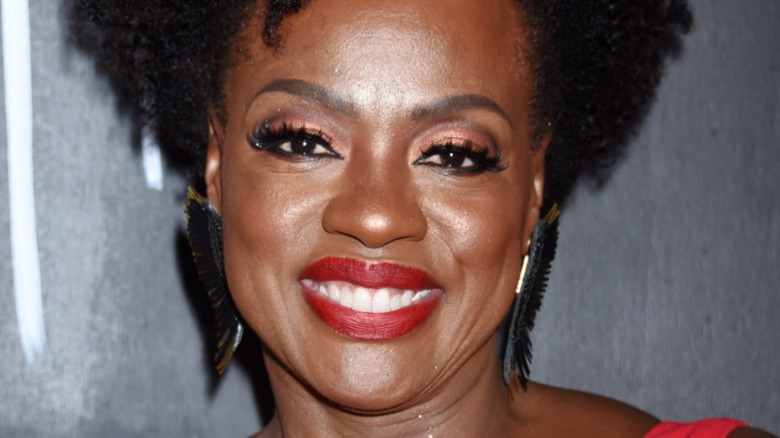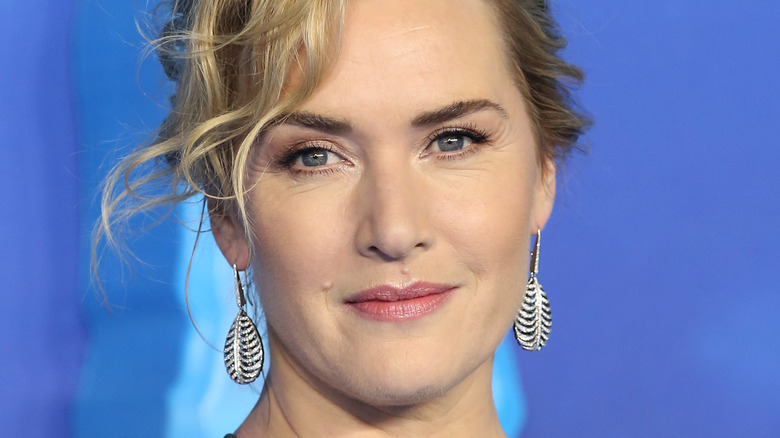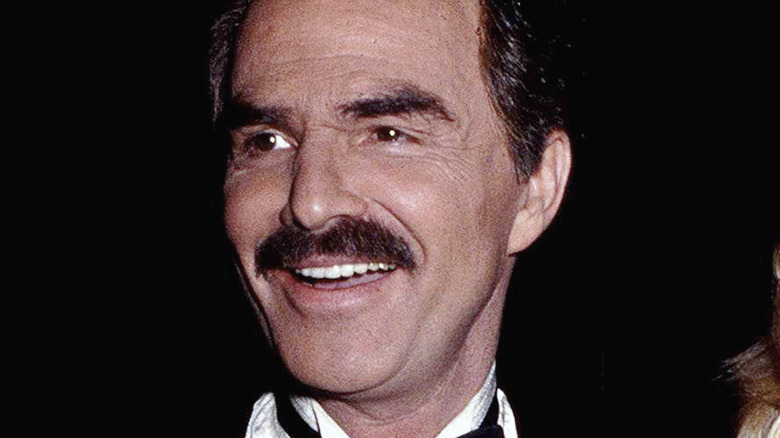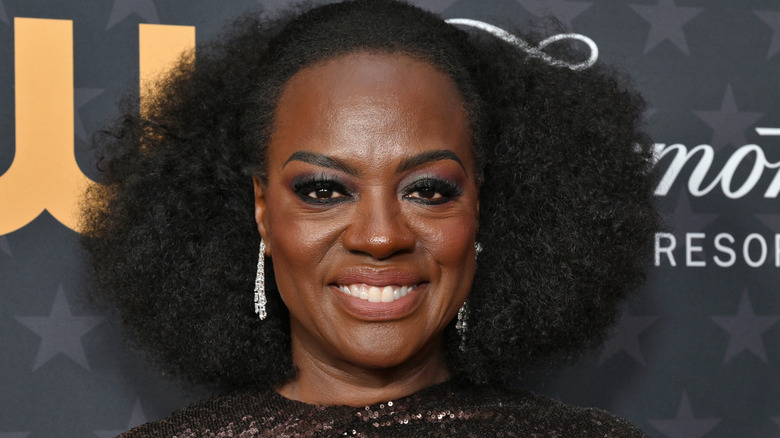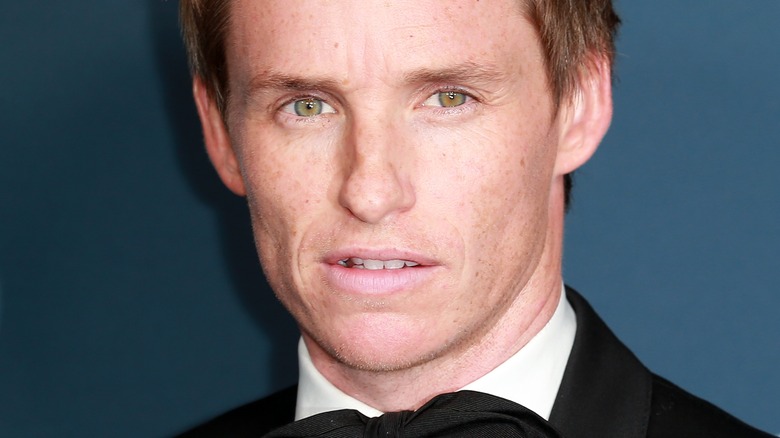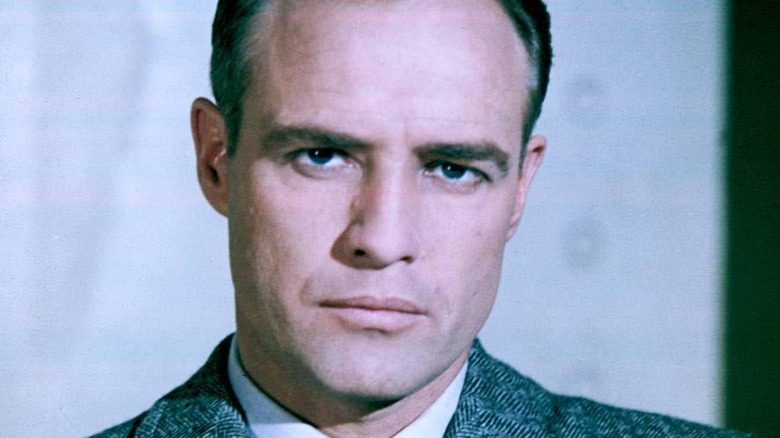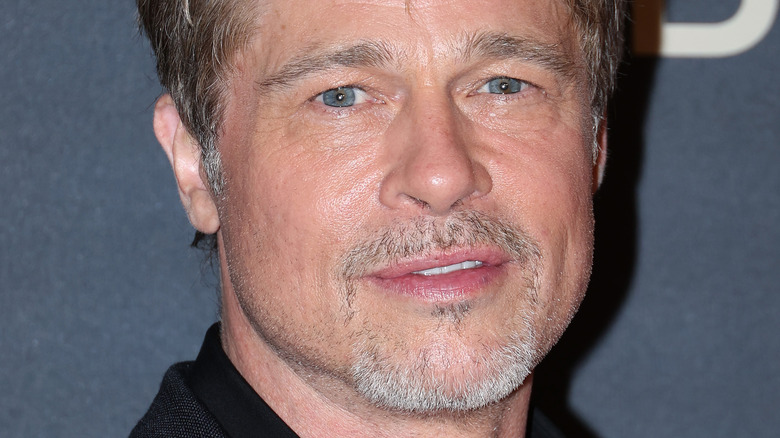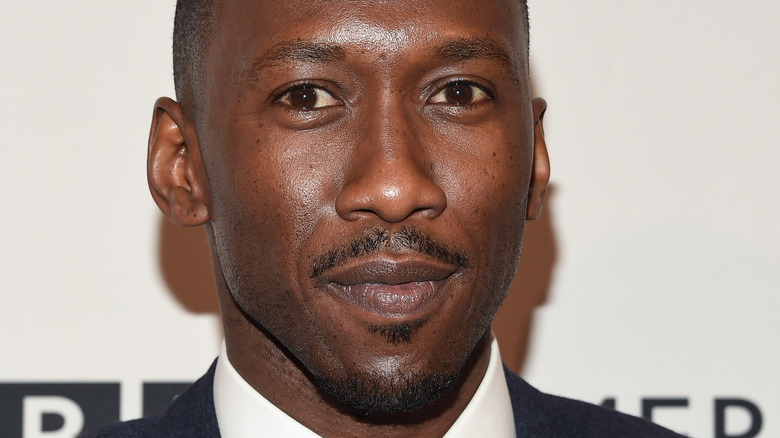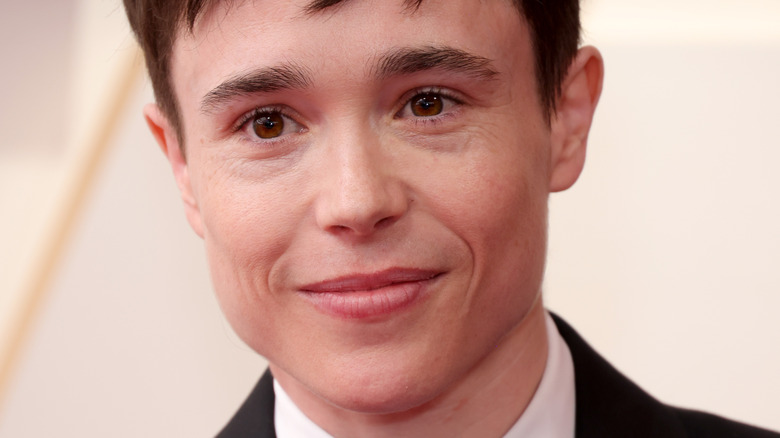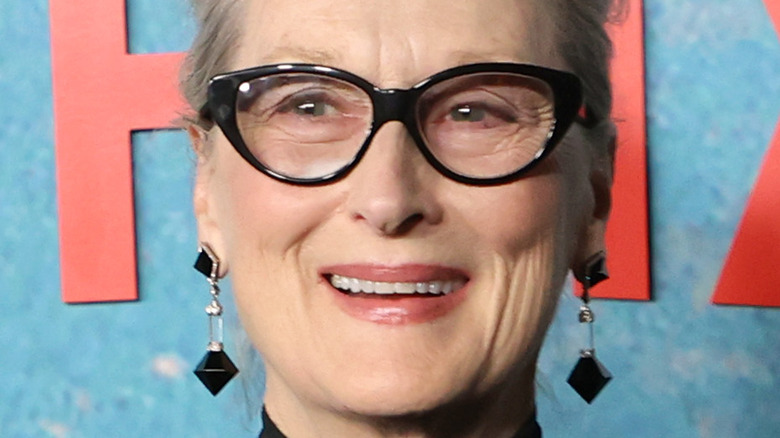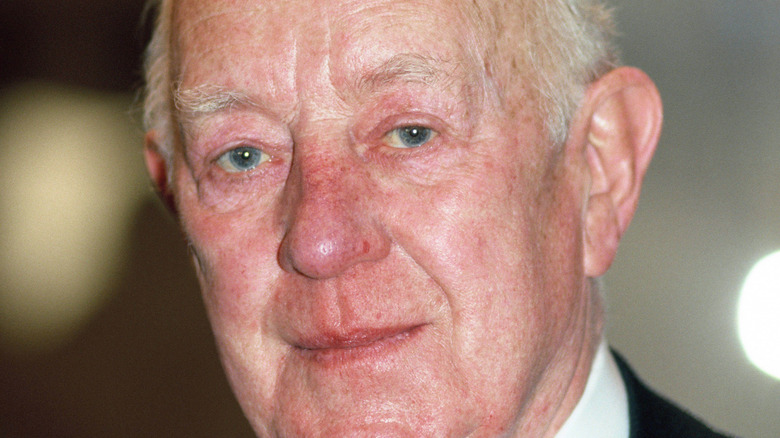Actors Who Have Huge Regrets About Their Oscar-Nominated Roles
While almost everyone's job can cause a bit of self-doubt and insecurity, artistic professions seem to have a peculiarly emotional and exposed element that makes self-criticism inevitable. As Oscar-nominated actor Annette Bening once explained: "You always have a certain amount insecurity or uncertainty, or there's a search goin on, and in a way that never really stops."
For many actors, receiving an Academy Award is the highest honor one can achieve and it may seem like such an accolade would wash away any doubts about the quality of a performance. But getting a little gold man apparently doesn't always make an actor immune to self-criticism. In fact, it often seems like the best actors are hardest on themselves, perhaps because this vulnerability and openness to change keeps them grounded and allows them to continue to grow as performers.
There's a number of actors who, despite being recognized by the Academy of Motion Picture Arts and Sciences, have serious regrets about their Oscar-nominated roles. Sometimes it's their performance they regret, or a line they wished they hadn't said, or even remorse about accepting the role in the first place. Let's take a closer look at some of those instances.
Kate Winslet cringes at her accent in Titanic
The 1997 James Cameron blockbuster "Titanic" catapulted Kate Winslet (along with her co-star Leonardo DiCaprio) into superstardom and cemented her place as a 1990s icon. The role of Rose DeWitt Bukater landed the young starlet her first Oscar nomination in 1998. But Winslet was only 20 years old at the time and still honing her craft and finding her ground as an actor. While it's hard to imagine anything needing to change about the iconic movie, Winslet sees her mistakes all too clearly looking back.
In an interview with CNN, she explained that she now feels embarrassed watching every scene she's in the movie but it's especially the accent that the English actor regrets: "Even my American accent, I look at it and I'm like 'oh my god.' I can't even listen to myself. It's awful." She admitted, however, that she's never stopped judging herself harshly when watching performances. "It sounds terribly self indulgent but actors do, I think, tend to be pretty self-critical and I have a very hard time watching myself anyway. But no, my god, I mean I watch 'Titanic' and I just think 'Ah! I want to do that bit again,'" she added.
Burt Reynolds hated Boogie Nights
The 1997 Paul Thomas Anderson film "Boogie Nights" led to Burt Reynolds receiving rave critical reviews for his performance as adult filmmaker Jack Horner, and landed him a 1998 Oscar nomination for best supporting actor. The movie, about the 1970s adult film industry, was a comeback for the aging actor, but Reynolds never liked the story and the whole experience left a bad taste in his mouth. "He hated it," his co-star Mark Wahlberg confirmed, per Yahoo!.
Reynolds never really wanted to be a part of the film. In fact, he turned down the role seven times before finally accepting it. "It just wasn't my kind of film," he told Conan O'Brien. He confessed the subject matter made him "very uncomfortable." And to top it all off, he didn't get along with Paul Thomas Anderson. "I just wanted to hit him ... I don't think he liked me." Reynolds never even watched the final cut of the movie. "I haven't seen it ... I don't want to see it," he said.
He reportedly fired his agent after the whole ordeal of "Boogie Nights", per The Hollywood Reporter.
Viola Davis regrets partaking in The Help
The 2011 movie "The Help," based on the 2009 novel of the same name, gained a lot of attention during the 2012 awards season. Viola Davis, who played Aibileen Clark, an African-American maid working in a white household in the 1960s American South, was nominated for an Oscar in 2012 for her work in the film. Looking back, however, Davis isn't necessarily proud of the performance, believing it wasn't a fair and accurate portrayal of the character. In a 2018 interview with The New York Times, she confessed that she regretted taking on the role. "I just felt that at the end of the day that it wasn't the voices of the maids that were heard," she explained.
Though the story itself was more to blame than the actors, two years later, the regret for partaking in the movie was clearly still plaguing Davis. During a 2020 interview with Vanity Fair, she said, "There's a part of me that feels like I betrayed myself, and my people, because I was in a movie that wasn't ready to [tell the whole truth]." She noted that she has nothing but love for the cast and crew of the film and instead identifies "systemic racism" as the true problem.
Eddie Redmayne agrees with critics of The Danish Girl
The 2015 film "The Danish Girl," based on the true story of trans artist Lili Elbe, landed Eddie Redmayne an Oscar nomination for best actor in a leading role in 2016. But the movie was quick to earn more backlash than praise. Trans writer Carol Grant called the film "regressive, reductive, and harmful," noting that the choice of casting a cisgender heterosexual man to play the part was only one of many problems with the film's portrayal of trans life.
The criticism led Redmayne to re-evaluate the role. Reflecting on it in recent years, he admits he regrets it. "No, I wouldn't take it on now. I made that film with the best intentions, but I think it was a mistake ... The bigger discussion about the frustrations around casting is because many people don't have a chair at the table," he told The Sunday Times. In an interview with IndieWire, he also admitted that he agrees it was wrong for him to benefit from the film, saying, "I think there has been years of cisgender success on the back of trans stories ... And for me, I hope there's a day when there are more trans actors and trans actresses playing trans parts, but also cisgender parts."
Marlon Brando was conflicted about his role in A Streetcar Named Desire
The role of Stanley Kowlaski in Tennessee Williams' "A Streetcar Named Desire" was Hollywood legend Marlon Brando's first major role. He played the part in the Broadway play in 1947, and then reprised it in the 1951 film adaptation, which earned him a 1952 Oscar nomination for best actor and solidified his place as an icon. Despite originating the role, Brando always had regrets about his performance. "Admittedly it is impossible for anyone to judge themselves objectively, but I have never believed that I played the part of Stanley successfully," he wrote in his autobiography "Songs My Mother Taught Me."
Brando never stopped being conflicted about the role. On one hand, he doubted he ever could be as brutal as the character needed to be. On the other hand, he also resented that the brutality of the character was attached to him as a person. "A few writers have suggested that in portraying the insensitive, brutish Stanley Kowalski, I was really playing myself," he wrote in his memoir. But he hated being associated with the negative qualities of the character. "I've run into a few Stanley Kowalskis in my life–muscled, inarticulate, aggressive animals who go through life responding to nothing but their urges and never doubting themselves...But they weren't me. I was the antithesis of Stanley Kowalski. I was sensitive by nature."
Brad Pitt felt his performance fell apart in 12 Monkeys
"12 Monkeys" was a 1995 science-fiction time-traveling viral apocalypse movie directed by Terry Gilliam. In the film, Brad Pitt plays the role of crazed Jeffrey Goines, a role that landed the actor his first Oscar nomination in 1996. Despite the praise, Pitt has had regrets looking back on the role, feeling he lost grasp of the character in the second half of the movie.
In a 2019 interview with The New York Times, Pitt explained, "I nailed the first half of '12 Monkeys.' I got the second half all wrong. That performance bothered me because there was a trap in the writing. It's not the writing's fault, but it was something that I couldn't figure out. I knew in the second half of the film I was playing the gimmick of what was real in the first half ... and it bugged the [expletive] out of me." While he doesn't go into detail about what exactly he would change now if he could, clearly writer-director Gilliam felt okay about the performance at the time, as did the Academy.
Mahershala Ali regrets not consulting the family of Dr. Shirley for Green Book
The 2018 film "Green Book" was based on a true story about Dr. Don Shirley, an African-American classical pianist, and his friendship with his Italian-American chauffeur during the 1960s. But the authenticity of the story was called into question when Shirley's family spoke out in disapproval. Shirley's brother went as far as calling it "a symphony of lies" in an interview with Shadow and Act.
Mahershala Ali, who portrayed Shirley in the film, took home an Oscar for the role and while he doesn't regret the movie, he has expressed a regret for not contacting the family during the filming process. "... My job is always the same: I have to look at what I am doing and be responsible for it ... I respect the family ... at the end of the day you wish everyone was happy and you don't want to offend anyone in any capacity," Ali said, per Deadline.
The unhappy relatives received a personal call from the actor. Shirley's nephew, Edwin Shirley, explained, "I got a call from Mahershala Ali ... What he said was, 'If I have offended you, I am so, so terribly sorry. I did the best I could with the material I had. I was not aware that there were close relatives with whom I could have consulted to add some nuance to the character.'" During his acceptance speech at the Academy Awards ceremony, Ali made sure to give credit to Dr. Shirley.
Elliot Page regrets saying a homophobic joke in Juno
"Juno," Diablo Cody's comedy about a pregnant teen, was Elliot Page's breakout role at the age of 20. The movie led to the actor's first and only Oscar nomination in 2008. Page generally looks back on his "Juno" era with a love-hate relationship. On one hand, the film made him a star but this was before the trans actor had transitioned, and he struggled with being in the spotlight under an identity that didn't feel true to himself. "I wish people would understand that that sh*t literally did almost kill me," he confessed to Esquire when discussing his dark times during his "Juno" success.
To make matters more complicated, Page regrets certain aspects of the film, particularly one line of dialogue. When the character rejects a suggested baby name because it's "a little gay," Page now recognizes this as homophobic. "It wasn't something I totally registered at the time, but, of course, now that I'm older I do ... So many movies I loved as a kid are just rampant with homophobia and transphobia and biphobia, and I'm not excusing it by any means," he told Bustle. During a 2018 live read of the film's script, a charity event for Planned Parenthood, Page refused to say the line and skipped over it during the read.
Meryl Streep believes her performance in The French Lieutenant's Woman could have been better
Meryl Streep is arguably one of the greatest actors of her generation. In fact, she's been nominated for an Academy Award 21 times, per TIME. But there's at least one of those performances she regrets: her role in the 1981 film, "The French Lieutenant's Woman" which she believes was one of her weakest performances ever.
When asked on The Graham Norton Show if she looked back on any performances with self-criticism, Streep confessed that she thought her Oscar-nominated part in the film wasn't her best. "I'm giving myself an out, but part of it was, the structure of it was sort of artificial because I was the actress playing The French Lieutenant's Woman. At the same time, I was an American actress playing a British woman," she told Norton, adding, "I didn't feel I was living it ...You always want to do something better after the fact."
Alec Guinness surprisingly wasn't a fan of Star Wars
Alec Guinness was a world-class thespian who performed on stage for years in a number of Shakespearean productions, per Britannica. His most famous role, however, will undoubtedly always be Obi-Wan Kenobi in the original "Star Wars" trilogy, a role that landed him an Oscar nomination in 1978. But for "Star Wars" fans, it may come as a surprise that Guinness didn't like the movies.
In his book "A Positively Final Appearance," Guinness wrote, "I have no intention of revisiting any galaxy. I shrivel inside each time [Star Wars] is mentioned. Twenty years ago, when the film was first shown, it had a freshness, also a sense of moral good and fun. Then I began to be uneasy at the influence it might be having."
Reportedly, it wasn't just the cultural influence that bothered him but the quality of the scripts as well. According to The Guardian, the actor stated, "Apart from the money, I regret having embarked on the film ... I like them well enough, but it's not an acting job, the dialogue — which is lamentable — keeps being changed and only slightly improved." If that's how he felt about the original "Star Wars" series, there's no telling what he must have thought about the prequel series in the late 1990s and early 2000s, which were arguably notoriously lower in quality.

